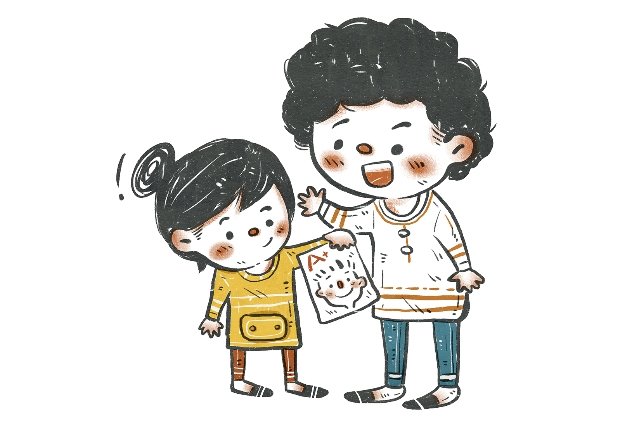Parents Zone

Parents’ feedback and discipline mentality
helps develop children self-confidence
Self-confidence is an essential cornerstone for children’s healthy growth; it profoundly impacts their learning, socialization and mental health. As a parent, your role is crucial in cultivating children’s self-confidence. Patience is key, not just in responding to children, but in examining and adjusting your disciplinary mentality. It is about facing the difficulties and challenges together with your children, fostering an attitude of acceptance and companionship for growth.
As children's first teachers, parents play a crucial role in shaping their self-image and self-confidence. The responses of parents to their children's learning challenges are instrumental in this process. It's natural for parents to feel discouraged, disappointed, or even angry when their children struggle to understand or make mistakes. In such moments, it's important to consider your response. How will you handle the situation? Will you offer help or resort to scolding?
The role of parents is not only to raise the children but to help them grow. If you do everything for them, this will deprive them of learning opportunities and make them dependent, affecting their self-confidence and their sense of responsibility. It is crucial to understand that overprotection can harm your children's independence, making them less confident and responsible. On the contrary, if parents are overly strict, demanding their children do better, or even often blame them, this will lower their self-esteem and hinder their ability and confidence to learn independently. It is important to remember that your emotions, behaviours, and reactions as a parent should be a result of self-reflection. This self-reflection can empower you, helping you to understand your own uneasiness and anxiety, or your high expectations, and how these might be affecting your parenting.
Parents should pay more attention to their emotions and feelings; you may feel angry, worried, and uneasy, but what do you value most? We must be calm and avoid overly intervening, controlling or picking on children's behaviour. It is our responsibility to observe our children's abilities, behaviours and needs with a supportive smile. When we notice that our children need encouragement and help from adults, we can offer assistance and work with them to face the challenge to help them build their self-confidence.
Children’s perceptions play a crucial role in shaping their behaviour. As parents, it is important to be mindful of this influence. When you notice good behaviour in your children, acknowledge it with words and actions. This not only reinforces positive behaviour but also communicates to your children that you value and appreciate their efforts. For instance, 'You did very well! You picked up the toys without me reminding you, which mummy appreciates your help.' or 'I can see you are working hard in writing. You did very well.'
Encouragement is a key strategy for parents to help their children keep trying and acting to increase their ability. By focusing on their achievements rather than what they cannot do, parents can create a supportive environment where children feel safe to explore and learn. This approach lets children understand that with perseverance and hard work, they can achieve their goals. It is important for parents to appreciate their children's process, rather than constantly demanding and correcting their behaviour.
As parents, you play a crucial role in providing the necessary support and encouragement to your children. Your positive affirmations such as “You are improving!” and “I understand it is a bit difficult; we can try harder together!” Supports are more than just words. They are the building blocks of your children’s self-confidence, helping them face difficulties and reach their potential.



